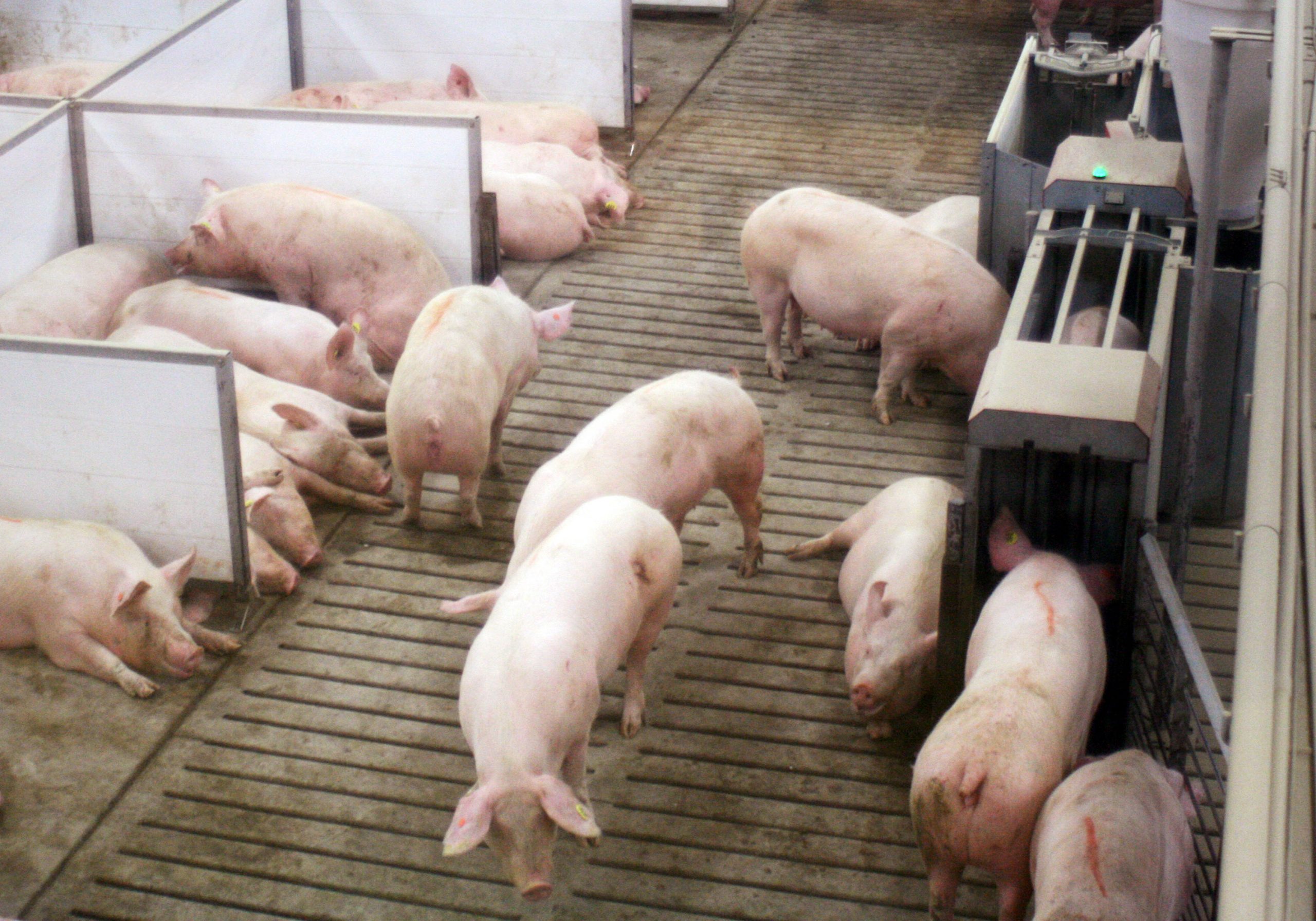The pork production industry is hogging the Supreme Court‘s docket this week in pursuit of a ruling against a California animal welfare law, arguing the 2018 measure could impede free trade in other parts of the country.
The National Pork Producers Council and the American Farm Bureau Federation are appealing a decision by the San Francisco-based 9th U.S. Circuit Court of Appeals, which previously ruled against the producers. Both groups are seeking to invalidate California’s Proposition 12, adopted by voters in 2018, which blocks sales of pork, eggs, and veal in the state from farms that do not meet minimum space requirements for the animals.
CALIFORNIA’S PROP 12 TO AFFECT IOWA FARMERS WITH DRASTIC CHANGES
Industry groups suing California allege Proposition 12 violates a provision of the U.S. Constitution known as the commerce clause, which allows Congress to regulate interstate commerce by requiring out-of-state producers to comply or face a California sales ban.
But because the 9th Circuit found no commerce clause violation, justices on the high court, who are deliberating arguments in the case National Pork Producers Council v. Ross on Oct. 11, will be the ultimate determiners of whether California voters should be allowed to dictate how farmers in Iowa, Minnesota, and other states produce pork.

The commerce clause is known for its ability to prevent states from enacting laws that significantly affect free trade across the country. A legal doctrine known as the “dormant” commerce clause prevents states from enacting laws discriminating against commerce in other states.
In the 1979 high court case Hughes v. Oklahoma, the ruling cited the constitutional framers’ view of the commerce clause, noting it was a way to avoid “the tendencies toward economic Balkanization that had plagued relations among the Colonies and later among the States under the Articles of Confederation.”
While animal rights groups have argued some pork producers confine pregnant pigs in cages so small that the animals cannot turn around or move for most of their lives, the National Pork Producers Council has defended the size of these cages as humane and necessary for the animals’ safety.
Most commercial pig farms keep pregnant sows in “gestation crates” that measure 2 feet by 7 feet, which allows enough room for the hogs to stand, lay down, or sit but not enough to turn around. The California law, which garnered 63% of the vote when it passed, requires that each sow must have at least 24 square feet of floor space, which is nearly double the amount that most pigs receive now.
CLICK HERE TO READ MORE FROM THE WASHINGTON EXAMINER
Advocates for pork producers point to statistics that show California only consumes 15% of all pork in the United States, while almost all that pork is produced elsewhere. Under Proposition 12, any pork grown or sold in the Golden State cannot be sourced from farms that use gestation crates.
President Joe Biden’s administration has sided with pork producers in a brief filed to the Supreme Court, arguing that states including California cannot ban products “that pose no threat to public health or safety based on philosophical objections.”
Proposition 12 took effect this year on Jan. 1, prompting farmers in states like Iowa to begin work to become compliant with the Golden State rule. Two of the nation’s largest pork producers, Smithfield Foods and Seaboard Foods, said last year they plan to become compliant with the law.
CLICK HERE TO READ MORE FROM THE WASHINGTON EXAMINER
“We’re asking the Supreme Court to consider the constitutionality of one state imposing regulations that reach far outside its borders and stifle interstate and international commerce,” said Jen Sorenson, the president of the NPPC.
While it’s unclear how the 6-3 conservative majority on the court might decide the case, a ruling in favor of pork producers could provoke more challenges to state regulations. However, a ruling favoring California could instigate a greater economic cost for producers, which will need to become compliant with Proposition 12.

